As suggested, shuffling the set will work but other indirect statistical quantities might be of interest, such as the distribution of the loop variable as a function of the array index.
This seemed interesting so I went ahead and plotted the distribution of the loop as a function of the array index, which generally increases as i increases. Indeed, as we get near the end of the array, the chance of getting a new random number that is not already in the set decreases (and hence, the value of the loop variable increases; see the code below).
Specifically, for an array size = 1000, I recorded the non-zero values generated for loop (there were around 500 duplicates) and then made a plot vs the index.
The plot looks like this:

The code below will produce an array with the unique random values, and then calculate the value for loop. The loop values could be stored in another array and then saved for later analysis, but I didn't include that in the code below.
Again, I'm not exactly sure this fits the application, but it does return information that would not necessarily be available from an approach using a shuffle algorithm.
NOTE: some folks expressed concerns about how long this might take but it runs pretty quick, on my 2011 Macbook Pro it took a about a second for an array size of 1000. I didn't do a big-O analysis as a function of the array size, but that would be interesting too.
NOTE 2: its more elegant to use recursion for the numberInSet() function but it seemed best to keep simple.
#include <stdio.h>
#include <stdlib.h>
#include <time.h>
#include <stdbool.h> /* If C99 */
const int ARR_SIZE = 1000;
/* Check if the number is in the set up to the given position: */
bool numberInSet(int number, int* theSet, int position);
int main()
{
int* arr = malloc(sizeof(int)*ARR_SIZE);
srand((unsigned int)time(NULL));
/* Intialize array with rand entries, possibly duplicates: */
for(int i = 0; i < ARR_SIZE; i++)
arr[i] = rand() % ARR_SIZE;
/* Scan the array, look for duplicate values, replace if needed: */
for(int i = 0; i < ARR_SIZE; i++) {
int loop = 0;
while ( numberInSet(arr[i], arr, i-1) ) {
arr[i] = rand() % ARR_SIZE;
loop++;
}
/* could save the loop values here, e.g., loopVals[i] = loop; */
}
for(int i = 0; i < ARR_SIZE; i++)
printf("i = %d, %d\n",i,arr[i]);
/* Free the heap memory */
free(arr);
}
bool numberInSet(int number, int* theSet, int position) {
if (position < 0)
return false;
for(int i = 0; i <= position; i++)
if (number == theSet[i])
return true;
return false;
}
